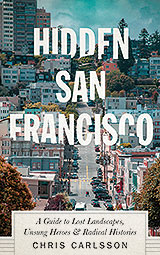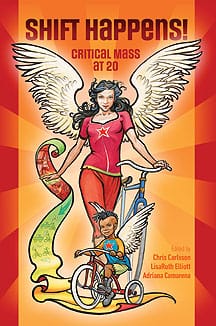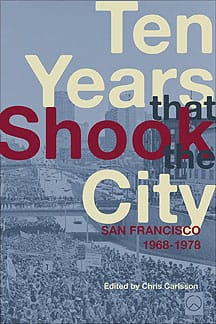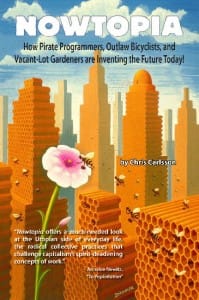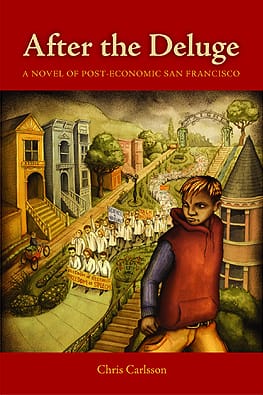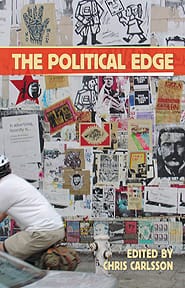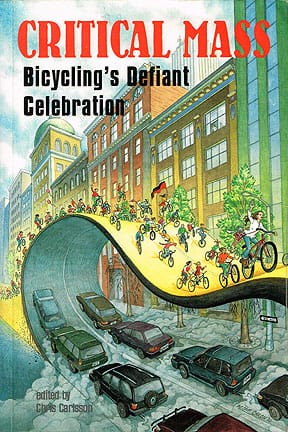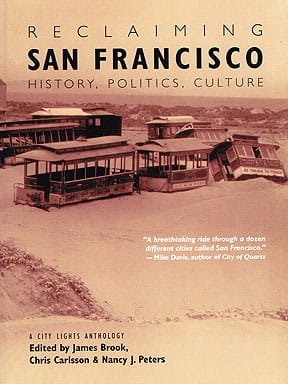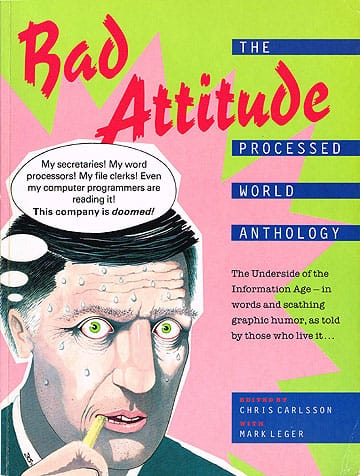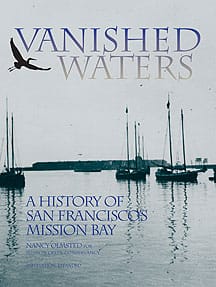Recent Posts
-
It IS Happening Here
February 16, 2024
-
General Ludd to General Intellect
January 11, 2024
-
Temporal and Geographic Edges
December 26, 2023
-
The Root of All Evil
October 13, 2023
-
Post-Pandemic Melancholia . . . Same As It Ever Was?
September 3, 2023
-
Chronicle of Deaths Foretold
June 24, 2023
-
Reparations is the Least We Should Do
May 11, 2023
-
We Are Not Alone
April 9, 2023
-
War and Anti-War
February 22, 2023
-
For Full Enjoyment, Not Full Employment!
January 7, 2023
|
I don’t know how many people, like me, lived through the political era of Nixon, Watergate, and the Vietnam War, but if you did, these days are even more profoundly discouraging than usual. The cliche about reliving history the second time as farce is part of it (though it’s way too barbaric and bloody to be merely farce), but there’s also the bizarro funhouse inverse world that so much of the spectacle seems content to reproduce so blithely.
I’ve been feeling kinda blue lately, and haven’t really been able to put my finger on why. A good friend called last week, rather distraught and admitted that she’d been unnerved by the London bombings. I don’t really react directly to such horrors, or I don’t think I do. But maybe I have a delayed reaction sometimes. In the case of the London bombings there’s the obvious disparity between the intense horror at the barbarism of such an attack and the rather calm, matter-of-fact tolerance of the everyday news out of Iraq which consists of much the same level of mayhem. So I can’t get too worked up about the London story as somehow so much more terrible than any other part of the madness in the world, especially considering that it’s so plainly connected.
Continue reading Not Again (or Again AND Again!)
There’s a new documentary in town, originally a French production with a farcical narrative, it’s been re-narrated in English as a more straight-ahead doc on the Emperor Penguin of Antarctica (March of the Penguins). Since I’m currently reading Kim Stanley Robinson’s “Antarctica” it was a good time to see this film and get a good look at the icescape of that little-known continent. But it was a great match with Jeremy Narby’s new book Intelligence in Nature: An Inquiry into Knowledge.
The Emperor penguins, as seen in this film, are remarkably human. But forgoing the obvious anthropomorphism of that notion, the specific behaviors of the penguins show remarkable intelligence. And that begs the same question as Narby’s book, ‘what is intelligence’? It turns out that the harder one tries to arrive at a working definition of ‘intelligence’ the more elusive it becomes. Narby quotes a plant biologist’s definition: “adaptively variable behavior during the lifetime of the individual”. This tries to encompass a wide range of observable behaviors that are inadequately explained as mere reflex responses to chemical signals, or any of the other myriad relatively mechanical explanations that have been commonly proffered by scientists for the past 200 years. What makes Narby’s book so interesting is his rational and rigorous attempt to discover and explain (mostly in other scientists’ work) the evidence of intelligence that has been held as a given by so-called primitive peoples who live in, e.g., Amazonian jungles.
Continue reading Penguins Do the Darndest Things!
This is a quickie. Saw that horrible new War of the Worlds last night. Saw the very interesting Crash a month ago. Somehow there is a weird echo in them for me, but one that most people would not see or hear in either film.
First Crash is getting a lot of attention as a blisteringly honest film about race relations. I didn’t think so. I think it’s a fairly accurate portrayal of how people rely on shallow racist stereotypes to navigate their frustrations and insecurities in daily life. But the real point of that movie, stated rather clearly in the opening epigraph voiceover by Don Cheadle, is what car culture does to us. “We never touch each other, unless in a disaster.” That’s not a verbatim quote because I’d have to see it again (can someone give me the actual line?), but it underscores the underlying theme of the movie, that revolves around a series of interlocking plots and car accidents. And sure, the fears and loathings that people maintain, mostly racist, are shown in their nauseating stupidity, but that part felt really separate and distant to me. Like racism in general, it’s artificial and based on alienation and separation. Crash shows how arbitrary and pointless the racist assumptions people use are, and how dramatically they’re tossed aside in profound moments of human connection.
But the less-than-one-dimensional Tom Cruise and the silly, disconnected, inconsistent War of the Worlds offers no insights into the human condition. Doubt that it was supposed to. But by accident it underscored something about class and America and war…
Continue reading Crashing into World Wars
|
|


